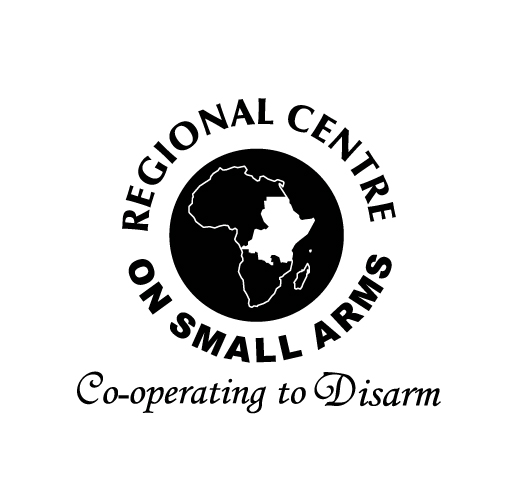EXECUTIVE SUMMARY
A notable achievement since the formation of RECSA is the establishment of the requisite institutional framework for the implementation of the Nairobi Protocol namely the Secretariat and the National Focal Points in all the 12 Member States. In addition, Development of Best Practices Guidelines on stockpile management; import, export, transfer and transit of small arms and light weapons; tracing and brokering of small arms and light weapons; harmonization of legislation on SALW and approaches to public awareness creation and education. National Action Plans have also been developed for Tanzania, Kenya, Uganda, Rwanda and Burundi while Djibouti and Eritrea are about to complete theirs.
A five-year Strategic Plan was developed in 2008 with a long term objective of achieving a secure sub region free from proliferation of illicit small arms and firearms misuse. Building on the aforementioned achievements, the plan identifies three strategic objectives namely; development of effective institutions, effective promotion and facilitation of SALW management and effective information provision. In addition, the strategic plan identifies specific intervention areas under each strategic objective.
In 2008, RECSA commissioned researchers at national level to develop country specific background papers on the status of implementation of the Nairobi Protocol in eight member states. The goal was to establish national as well as regional achievements and obstacles to the implementation of the Nairobi Declaration and the Nairobi Protocol in Member States and offer recommendations for a refined approach to regional implementation for maximum impact.
A regional validation workshop was convened where the findings and a draft implementation plan were discussed by Member States representatives, RECSA staff and partners. This implementation plan has therefore been developed through a consultative process among the stakeholders to ensure its implementation is embraced by all.
This Implementation strategy outlines an implementation framework for the RECSA Secretariat, National Focal Points and Member States. The specific interventions are based on a review of each country status and identification of gaps and progress in the implementation of Nairobi protocol. Factors that have enhanced or impended progress are identified and strategies that can enhance success have been isolated for each Member State. An implementation outline indicating focus Member States has been developed thus grouping and isolating Member States according to implementation levels and intervention needs.
